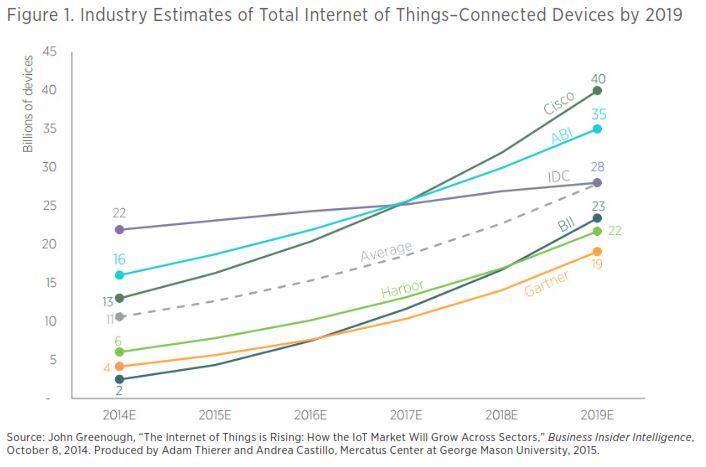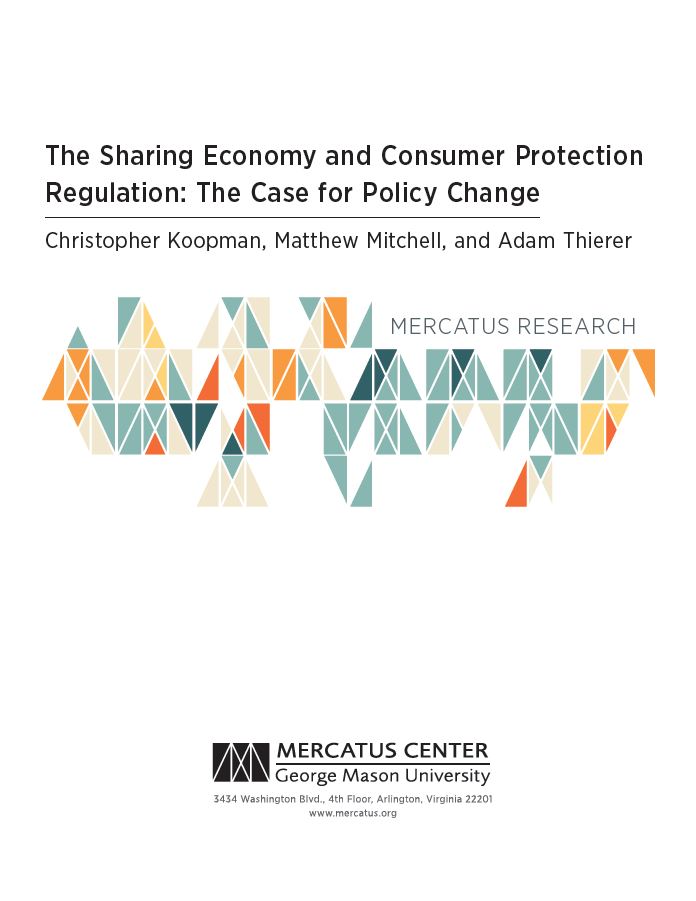Federal Communications Commission (FCC) Chairman Ajit Pai today announced plans to expand the role of economic analysis at the FCC in a speech at the Hudson Institute. This is an eminently sensible idea that other regulatory agencies (both independent and executive branch) could learn from.
Pai first made the case that when the FCC listened to its economists in the past, it unlocked billions of dollars of value for consumers. The most prominent example was the switch from hearings to auctions in order to allocate spectrum licenses. He perceptively noted that the biggest effect of auctions was the massive improvement in consumer welfare, not just the more than $100 billion raised for the Treasury. Other examples of the FCC using the best ideas of its economists include:
- Use of reverse auctions to allocate universal service funds to reduce costs.
- Incentive auctions that reward broadcasters for transferring licenses to other uses – an idea initially proposed in a 2002 working paper by Evan Kwerel and John Williams at the FCC.
- The move from rate of return to price cap regulation for long distance carriers.
More recently, Pai argued, the FCC has failed to use economics effectively. He identified four key problems:
- Economics is not systematically employed in policy decisions and often employed late in the process. The FCC has no guiding principles for conduct and use of economic analysis.
- Economists work in silos. They are divided up among bureaus. Economists should be able to work together on a wide variety of issues, as they do in the Federal Trade Commission’s Bureau of Economics, the Department of Justice Antitrust Division’s economic analysis unit, and the Securities and Exchange Commission’s Division of Economic and Risk Analysis.
- Benefit-cost analysis is not conducted well or often, and the FCC does not take Regulatory Flexibility Act analysis (which assesses effects of regulations on small entities) seriously. The FCC should use Office of Management and Budget guidance as its guide to doing good analysis, but OMB’s 2016 draft report on the benefits and costs of federal regulations shows that the FCC has estimated neither benefits nor costs of any of its major regulations issued in the past 10 years. Yet executive orders from multiple administrations demonstrate that “Serious cost-benefit analysis is a bipartisan tradition.”
- Poor use of data. The FCC probably collects a lot of data that’s unnecessary, at a paperwork cost of $800 million per year, not including opportunity costs of the private sector. But even useful data are not utilized well. For example, a few years ago the FCC stopped trying to determine whether the wireless market is effectively competitive even though it collects lots of data on the wireless market.
To remedy these problems, Pai announced an initiative to establish an Office of Economics and Data that would house the FCC’s economists and data analysts. An internal working group will be established to collect input within the FCC and from the public. He hopes to have the new office up and running by the end of the year. The purpose of this change is to give economists early input into the rulemaking process, better manage the FCC’s data resources, and conduct strategic research to help find solutions to “the next set of difficult issues.”
Can this initiative significantly improve the quality and use of economic analysis at the FCC?
There’s evidence that independent regulatory agencies are capable of making some decent improvements in their economic analysis when they are sufficiently motivated to do so. For example, the Securities and Exchange Commission’s authorizing statue contains language that requires benefit-cost analysis of regulations when the commission seeks to determine whether they are in the public interest. Between 2005 and 2011, the SEC lost several major court cases due to inadequate economic analysis.
In 2012, the commission’s general counsel and chief economist issued new economic analysis guidance that pledged to assess regulations according to the principal criteria identified in executive orders, guidance from the Office of Management and Budget, and independent research. In a recent study, I found that the economic analysis accompanying a sample of major SEC regulations issued after this guidance was measurably better than the analysis accompanying regulations issued prior to the new guidance. The SEC improved on all five aspects of economic analysis it identified as critical: assessment of the need for the regulation, assessment of the baseline outcomes that will likely occur in the absence of new regulation, identification of alternatives, and assessment of the benefits and costs of alternatives.
Unlike the SEC, the FCC faces no statutory benefit-cost analysis requirement for its regulations. Unlike the executive branch agencies, the FCC is under no executive order requiring economic analysis of regulations. Unlike the Federal Trade Commission in the early 1980s, the FCC faces little congressional pressure for abolition.
But Congress is considering legislation that would require all regulatory agencies to conduct economic analysis of major regulations and subject that analysis to limited judicial review. Proponents of executive branch regulatory review have always contended that the president has legal authority to extend the executive orders on regulatory impact analysis to cover independent agencies, and perhaps President Trump is audacious enough to try this. Thus, it appears Chairman Pai is trying to get the FCC out ahead of the curve.




 The Technology Liberation Front is the tech policy blog dedicated to keeping politicians' hands off the 'net and everything else related to technology.
The Technology Liberation Front is the tech policy blog dedicated to keeping politicians' hands off the 'net and everything else related to technology.